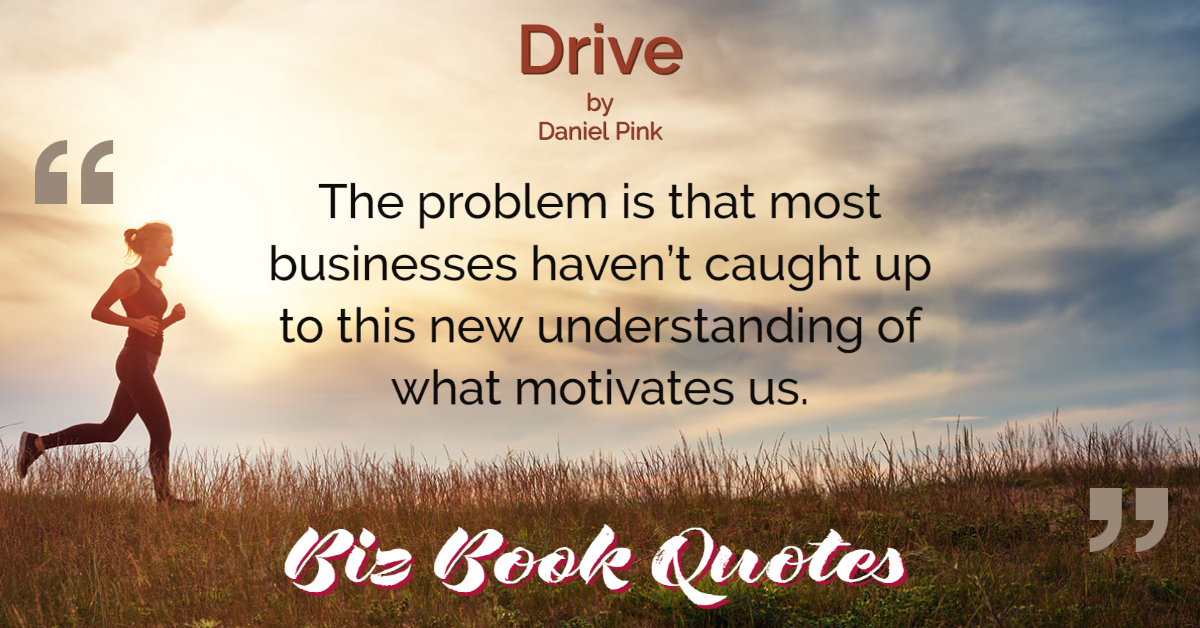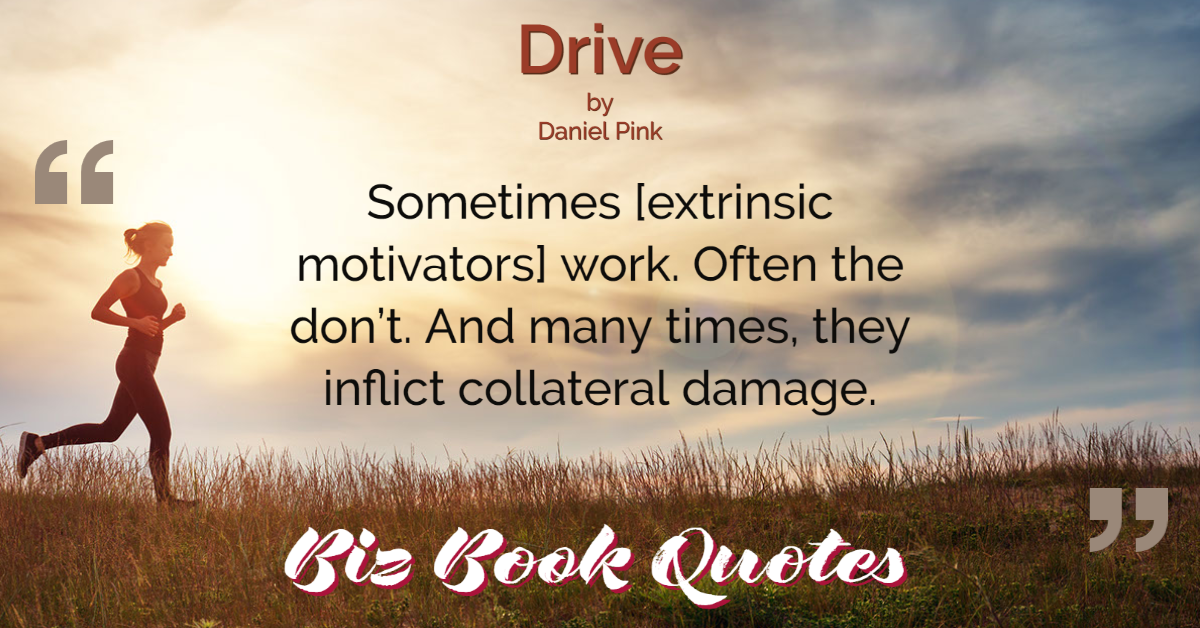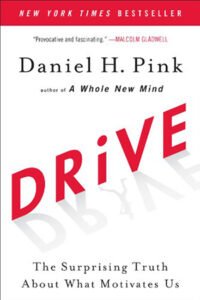|

|
Drive:
Rewards can deliver a short-term boost – just as a jolt of caffeine can keep you cranking for a few more hours. But the effect wears off – and, worse, can reduce a person’s longer-term motivation to continue…
|
8 |
|

|
Drive:
The problem is that most businesses haven’t caught up to this new understanding of what motivates us.
|
9 |
|

|
Drive:
Too many organizations… still operate from assumptions about human potential and individual performance that are outdated, unexamined, and rooted more in folklore than in science.
|
9 |
|

|
Drive:
…[organizations] continue to pursue practices such as short-term incentive plans and pay-for-performance schemes in the face of mounting evidence that such measures usually don’t work and often do harm.
|
9 |
|

|
Drive:
People have other, higher drives… And these drives could benefit businesses if managers and business leaders respected them.
|
20 |
|

|
Drive:
In real life our behavior is far more complex than the textbook allows and often confounds the idea that we’re purely rational.
|
27 |
|

|
Drive:
Sometimes [extrinsic motivators] work. Often they don’t. And many times, they inflict collateral damage.
|
27 |
|

|
Drive:
Partly because work has become more creative and less routine, it has also become more enjoyable.
|
30 |
|

|
Drive:
Just as oxen and then forklifts replaced simple physical labor, computers are replacing simple intellectual labor.
|
30 |
|

|
Drive:
…while outsourcing is just beginning to pick up speed, software can already perform many rule-based, professional functions better, more quickly, and much more cheaply than we can.
|
30 |











